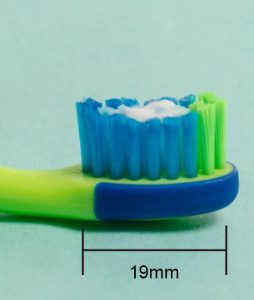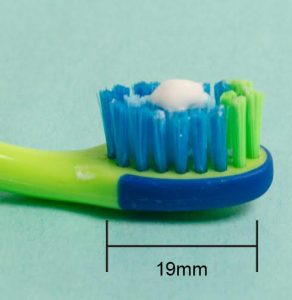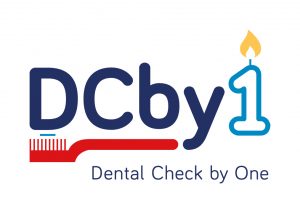It’s very exciting when your baby’s teeth first start to come through, although some babies really suffer from teething pain. As well as soothing them during teething it is important to begin looking after your baby’s teeth from the start.
When your baby’s teeth first come through, you should begin gentle tooth cleaning. You can use a small first baby toothbrush or there are some cleaning tools that you can slip over your finger for a gentler clean. Just make sure you wash your hands before putting them in your baby’s mouth and keep toothbrushes and cloths clean.
Public Health England recommends fluoride toothpaste but make sure that your baby doesn’t swallow it and only use a smear of the toothpaste.
Smear (Photo courtesy of Public Health England)

Blob (Photo courtesy of Public Health England)

You should take your baby to the dentist when their first teeth come through. Go at least once a year, unless your dentist recommends you should come in more often.
If based in the UK you can register for free with an NHS dentists and book your baby in for regular check-ups with the dentist. Dental care in the UK with the NHS is free for children up to the age of 18 (or up to 19 if in full-time education).
Change your baby’s toothbrush when the bristles start to look messy and curve outwards.
Yes! By the time your baby has her first birthday she will probably have several white milk teeth – also called baby teeth. Although these will fall out during childhood to be replaced with permanent teeth, it is important to take care of your baby’s teeth and instil good oral hygiene early on. By the time many babies enter toddlerhood they are already suffering from painful tooth decay which requires invasive dental treatment and sometimes extractions carried out under general anesthetic.

Please click here for further information from the British Society of Paediatric Dentistry.
